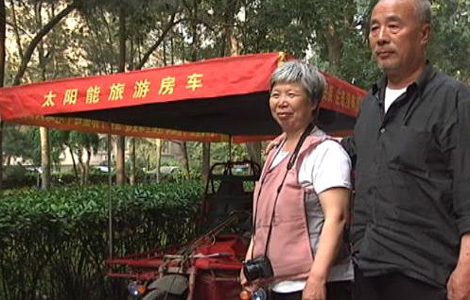US bans iPhone 4 due to patent violation
Updated: 2013-06-05 14:35
(Agencies)
|
|||||||||||
NEW YORK - A US trade agency on Tuesday issued a ban on imports of Apple's iPhone 4 and a variant of the iPad 2 after finding the devices violate a patent held by South Korean rival Samsung Electronics. It was the latest shot in a global legal battle between the two smartphone makers.
Because the devices are assembled in China, the import ban would end Apple's ability to sell them in the US
However, President Barack Obama has 60 days to invalidate the US International Trade Commission's order. Obama is against import bans on the basis of the type of patent at issue in the case. On Tuesday, the White House issued a recommendation to Congress that it limit the ITC's ability to impose import bans in these cases.
Apple Inc. said it was "disappointed" with the ruling and will appeal.
Samsung and Apple have been fighting over their smartphones, with Apple arguing that Samsung and its Android phones copy vital features of the iPhone. Samsung is fighting back with its own claims.
Last year, a federal court ruled that Samsung owed Apple $1 billion in damages for infringing on non-essential Apple patents. But the judge refused to impose an import ban on Samsung phones and later struck $450 million from the verdict, saying the jurors miscalculated. The case is set for a rematch in appeals court.
Samsung is the world's largest maker of smartphones. Analysts estimate it outsold Apple nearly 2 to 1 in the first three months of the year. However, Apple's smartphone business is more profitable
The iPhone 4 was launched in 2010 and is the oldest iPhone still sold by Apple. The ITC ruling applies only to the AT&T version of the phone. Apple is likely to retire the model in a few months with the launch of this year's new iPhone model.
Apple launched the iPad 2 in 2011. The ruling applies only to the version equipped with a cellular modem for AT&T's network.
The ruling also applies to older iPhones, though these are no longer sold by Apple.
Patent consultant and analyst Florian Mueller said the ITC ruling was a surprise, as the basis of Samsung's complaint is a so-called "standards-essential patent," describing a technology that's part of an industry standard for cellphone communications. Under the dominant legal theory, holders of such patents are obligated to license them to all comers on "fair, reasonable and non-discriminatory" terms. Courts have ruled that such patents cannot be the basis for import bans.
The ITC follows a different standard than the courts, but the Obama administration wants it to adhere to the same principles.
"Samsung is using a strategy which has been rejected by courts and regulators around the world," Apple said. "They've admitted that it's against the interests of consumers in Europe and elsewhere, yet here in the United States Samsung continues to try to block the sale of Apple products by using patents they agreed to license to anyone for a reasonable fee."
Mueller, who was not involved with either party in the case, said Samsung reserved the right to allege infringement by Apple products designed for networks other than AT&T's.
Related Stories
China Telecom cuts prices of iPhone4S models 2012-09-17 21:31
iPhone 4 allegedly combusts while charging overnight 2012-03-23 13:33
China Telecom to offer iPhone 4S 2012-02-22 09:56
Today's Top News
China, Mexico upgrade bilateral relationship
Solar duties risk China-EU trade ties
Protectionism hurts EU exports to China
EU imposes duties on solar products
China is victim of hacking attacks
Police advise women to 'cover up'
Beijing to have more clean-energy taxis
China's water quality 'not optimistic'
Hot Topics
Lunar probe , China growth forecasts, Emission rules get tougher, China seen through 'colored lens', International board,
Editor's Picks

|

|

|

|

|

|





